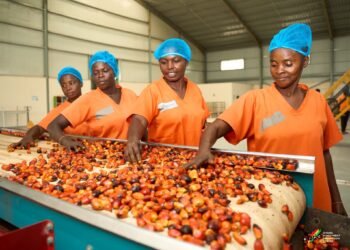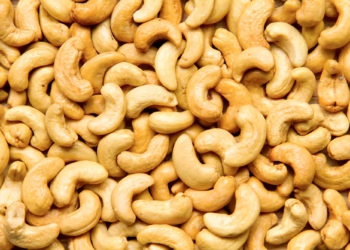A new report released by the Danish Embassy has shown that the value of food losses and waste in Ghana was estimated at $1.9 billion per annum.
According to the report, post-harvest losses of tomato, yam, mango, citrus and chilies accounted for major part of the loss incurred.
The report commissioned by the Danish Embassy on food loss and waste in Ghana is titled, “Feasibility Study for Cold Chain Business” which involves the transportation and distribution of temperature-sensitive products.
Speaking on the sidelines of a seminar organized by the embassy on food loss, Lead Researcher of the study, Mr. Dan Acquaye revealed that yam topped the chart with $560 million per annum.
“After the research, we realized that if you take tomato, yam, mango, citrus, and chilies with the areas that we performed the analysis, the food losses was about $1.9 billion per annum. We were surprised that the food loss of yam was over $560 million per annum.”
Mr. Dan Acquaye
Mr. Acquaye added that the post-harvest loss of mango was about $300 million with tomatoes alone accounting for over $60 million per annum.
March 12 marked the day of Sustainable Development Goal 12.3 – which aims to reduce food losses along production and supply chains.
Ahead of the day, the Embassy of Denmark organized a seminar to seek solutions from Danish and Ghanaian stakeholders, following the launch of a feasibility study for cold chain business and investment in Ghana by the Embassy.
The Danish Ambassador to Ghana, Mr. Tom Nørring emphasized the need to form partnerships in finding solutions to challenges facing the agriculture sector in Ghana.

“Actually, Denmark is traditionally a farming country. Hence, we have developed a lot of solutions of which some will be applicable here and others need to be adopted to be applicable in Ghana.”
“We have companies that developed solutions for food losses such as providing cold storage, cold chain among others. We want to bring in some Danish companies to match with some Ghanaian companies to form partnerships. We believe that these kinds of partnerships create real ownership on both sides.”
Mr. Tom Nørring
Government Urged To Adopt ‘Cold Storage’ To Avoid Wastage
Government of Ghana has been urged to focus heavily on the export of its agricultural products including crops, fruits and vegetables to bring in valuable foreign exchange and help the country in improving its trade of balance.

According to the Danish Embassy’s report, the largest volume of fruits exported consists of mangoes and citrus. Like all fruits, both mango and citrus are prone to spoilage after harvesting, eventually leading to wastage.
One of the ways this wastage can be reduced is through the usage of cold storages. Cold storages, as indicated by the report, provides optimal storage conditions, thereby increasing the shelf life of the products and maintaining its quality for it to be exported.
Given the importance and the untapped export potential of mango, citrus fruits and other agricultural vegetable products, Danish Embassy has called on government to set up a cold storage facility for export so as to optimize agric’s contribution to national income, food sources, create real demand, enhance infrastructural growth, and as well provide raw materials to other industries.























